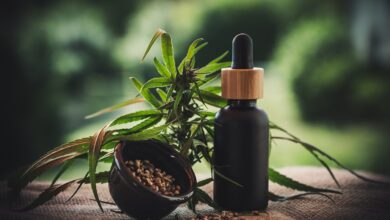The Legal Status of Delta 9 THC: What You Should Be Aware of

Delta-9 tetrahydrocannabinol, commonly known as THC, is the primary psychoactive component of cannabis. In recent years, there has been a surge in interest and investment in products containing delta-9 THC, including marijuana and hemp-derived products such as edibles, oils, and tinctures. As the popularity of these products continues to grow, it is important to understand the legal status of delta-9 THC in various jurisdictions and the potential implications for consumers and businesses.
The Legal Status of Delta-9 THC in the United States
In the United States, the legal status of delta-9 THC varies depending on the state and the source of the product. At the federal level, marijuana and THC products derived from marijuana remain illegal under the Controlled Substances Act. However, several states have legalized marijuana for medical and recreational use, allowing for the legal sale and consumption of delta-9 THC products within their borders.
Hemp-derived delta-9 THC products, on the other hand, are legal under the 2018 Farm Bill, which removed hemp and its derivatives from the list of controlled substances. This has led to the widespread availability of products containing delta-9 THC, such as CBD oils with trace amounts of THC, in states where marijuana remains illegal.
It is important to note that the legal status of delta-9 THC is a complex and evolving area of law, and consumers and businesses should stay informed about changes in regulations at both the federal and state levels.
Legal Implications for Businesses and Consumers
For businesses operating in the cannabis industry, the legal status of delta-9 THC has significant implications for licensing, marketing, and product distribution. Companies must navigate a patchwork of state and federal regulations, which can be challenging and costly. Additionally, businesses must ensure compliance with labeling and testing requirements to avoid potential legal and financial repercussions.
Consumers purchasing products containing delta-9 THC should be aware of the legalities surrounding their purchase and use. In states where marijuana is legal, consumers can purchase and consume THC products without fear of legal consequences. However, in states where marijuana remains illegal, consumers risk potential legal and criminal penalties for possessing and using THC products.
Frequently Asked Questions
Q: Is delta-9 THC legal in all 50 states?
A: No, delta-9 THC is not legal in all 50 states. While some states have legalized marijuana for medical and recreational use, others continue to prohibit its use and sale.
Q: Can I travel with products containing delta-9 THC?
A: It is important to research the laws of the state or country you are traveling to, as the legal status of delta-9 THC varies widely. In some jurisdictions, possessing and transporting THC products across state lines is illegal and can result in legal consequences.
Q: How can I ensure the legality and quality of delta-9 THC products I purchase?
A: It is crucial to purchase delta-9 THC products from reputable and licensed retailers. Additionally, consumers should look for products that have undergone third-party testing for potency and purity to ensure compliance with legal standards.
Q: What are the potential legal risks of purchasing and using delta-9 THC products?
A: Purchasing and using delta-9 THC products in violation of state and federal laws can result in legal consequences, including fines, penalties, and criminal charges. Consumers should thoroughly research the laws in their jurisdiction before purchasing and using THC products.
Q: How can businesses navigate the complex legal landscape surrounding delta-9 THC products?
A: Businesses operating in the cannabis industry should seek legal counsel to ensure compliance with state and federal regulations. Additionally, businesses should stay informed about changes in laws and regulations to avoid potential legal and financial repercussions.
In conclusion, the legal status of delta-9 THC is a complex and evolving area that has significant implications for consumers and businesses. It is crucial to stay informed about changes in regulations at both the federal and state levels and to ensure compliance with all applicable laws and requirements. Additionally, consumers should be aware of the legalities surrounding the purchase and use of delta-9 THC products and should exercise caution to avoid potential legal risks.
[ad_2]



